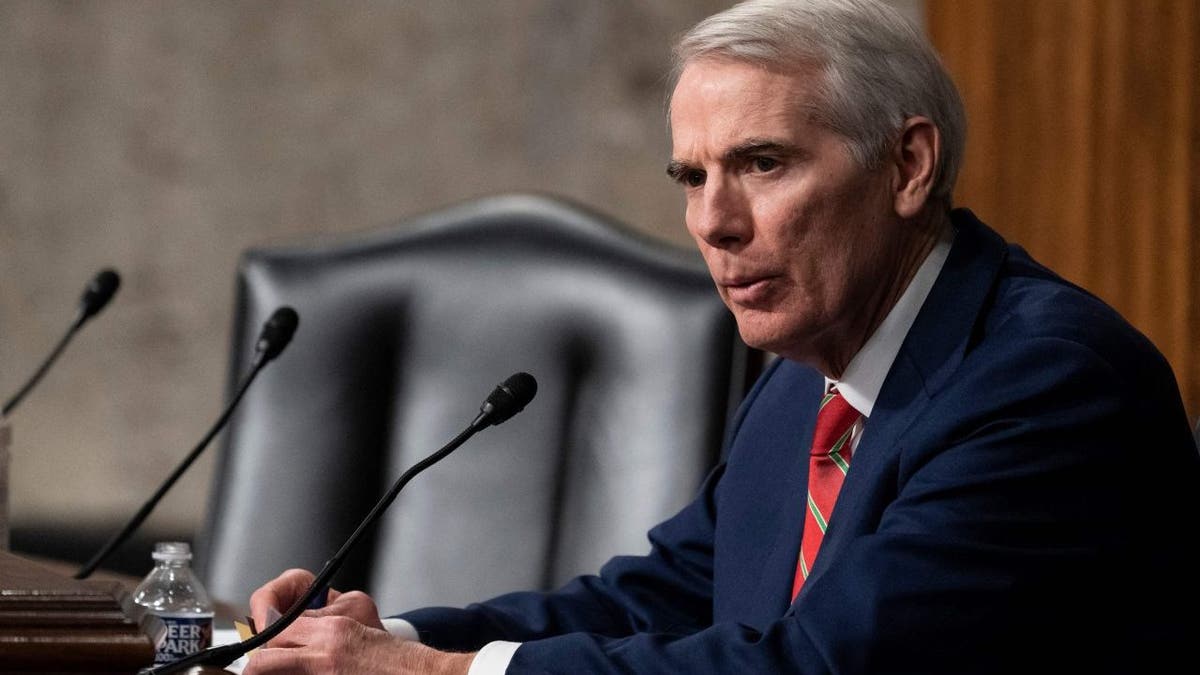Sen. Rob Portman: Uncut interview
Bret Baier sits down with the Ohio senator and potential GOP vice presidential candidate
As U.S. Senator Rob Portman enters his last year of public service in the U.S. Senate, those keeping score would have to agree that his tenure has been remarkably successful by any measure. And his most significant impact may very well be yet to come.
Under Portman’s steady leadership, Congress finally appears ready to acknowledge and fix a glaring 35-year-old legislative mistake. The Eliminating a Quantifiably Unjust Application of the Law (EQUAL) Act, which overwhelmingly passed the U.S. House of Representatives, has been championed by Portman in the Senate. The EQUAL Act would end the unjust mandatory minimum sentencing disparity between the two pharmacologically and chemically similar versions of cocaine—smokable crack that comes in rock crystal format and the more expensive powder variety.
CRACK PIPE DISTRIBUTION FUNDED BY HHS, PRIORITZING ‘UNDERSERVED’ COMMUNITIES: REPORT

Sen. Rob Portman speaks during a hearing of the Senate Foreign Relations to examine U.S.-Russia policy at the Capitol on Dec. 7, 2021. (Alex Brandon/Pool/AFP via Getty Images)
The cocaine crimes sentencing disparity originated in the war on drugs era and imposed a mandatory federal minimum sentence for crack cocaine that was 100 times greater than that of powder cocaine. After more than 20 years of failed federal sentencing policy, Congress quite sensibly cut that ratio down to 18 to one in 2010. The EQUAL Act would further correct Congress’ original error and better align federal sentencing guidelines with the 40 states that have already eliminated the crack/powder sentencing distinction that—according to the independent and bipartisan U.S. Sentencing Commission—has resulted in significant racial discrepancies among those serving federal sentences for distributing crack cocaine.
At the end of a legislative career, it is natural to look back and assess whether laws previously passed are achieving their intended objectives. As Senator Portman has concluded, the evidence is clear: new research suggests that the original justifications for the unequal mandatory minimums—namely the misbeliefs that crack cocaine is more addictive, more harmful to unborn babies, and more likely to cause the user to engage in violent crime—are simply and indisputably false. Whatever the original intention was, it is time to make things right.
Nevertheless, some stiffer-sentencing advocates have argued for eliminating the sentencing distinction by instead raising the powder cocaine mandatory minimum to match the mandatory minimum for crack cocaine. Such arguments ignore the evidence that draconian sentencing strategies have failed, and they downplay the negative effects those regimes have on those who are genuinely struggling with drug addiction.
Recent studies have shown that drug sentencing at the state and federal levels is most effective when focusing less on length of prison terms and more on ensuring that those struggling with addiction receive the treatment they need. According to a study in the Journal of the American Medical Association, for example, incarceration has little, if any, deterrent effect on future drug use by nonviolent drug offenders, despite costing U.S. taxpayers $22,000 per month on average.
As states including Portman’s beloved Ohio continue to grapple with devastating opioid addiction rates, pursuing the same misguided mandatory minimum sentencing strategy for nonviolent drug possession leads only to the same expensive, ineffective, and tragic results we have seen over the past few decades. Fortunately, the EQUAL Act wisely charts a new course by eliminating the unjust and irrational sentencing disparity and lowering federal mandatory minimum sentences that have proven to be effective at neither increasing public safety nor reducing illicit drug use.
CLICK HERE TO GET THE OPINION NEWSLETTER
In fact, one study found that, though policymakers imposed harsher penalties for crack versus powder cocaine, "crack use declined less than powder cocaine and even less than drugs" without similar penalty enhancements. Similarly, a RAND Institute study found that drug treatment "directly reduces the demand for drugs," which gives treatment "a substantial advantage over controlling drug-related crime because most drug-related crime is motivated not (directly) by drug use but rather by drug spending." Criminal penalties theoretically reduce consumption too, but the penalties also raise drug prices, exacerbating the related criminal activity.
CLICK HERE TO GET THE FOX NEWS APP
The EQUAL Act does not fix every federal drug sentencing problem, but it does fix a significant one that has languished on the books for too long and far past when we knew better. More importantly, the bill takes a step toward justice and commonsense, which the left, right, and center can equally appreciate is a legacy worth leaving—for Senator Portman, and for the country as a whole.























